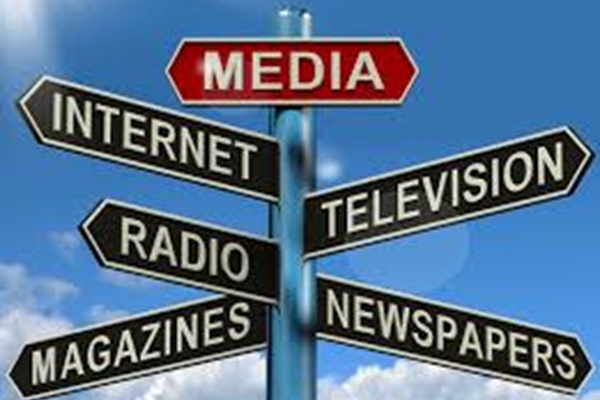The media worldwide walks a tight-rope. It must be thorough and painstaking in the discharge of its duty. It cannot afford to leave anything to chance because a mistake, no matter how little, can be costly. Such a costly mistake can cause discontent in the land. So, a medium must check, check and cross-check its facts before publishing. You do not publish first, and fact-check (as they call it these days) later.
The rule of thumb is you do not rush to publish a story no matter how hot it is for fear of being beaten to it by the competition so as to avoid giving untenable reasons later for your action. No paper worth its salt would run a story with distorted and disjointed facts just to get at the government of the day. The media and the government are neither friends nor enemies. They are more of partners in progress for the sake of their country. The media can be critical, which it should be anyway, of the government without being destructive.
It is constructive criticism that elevates a nation. To tell it as it is so that the government can get a feel of what is really happening in the larger society. The 1999 Constitution mandates the media to hold the government accountable to the people. To discharge this mandate, the media must first show itself worthy of taking up this responsibility. The media must therefore be deep and sombre. It cannot just pick a story and run with it, especially when the report is even contradicting itself, like the Samoa Agreement stuff ran by Daily Trust on July 4. As colleagues, let us tell ourselves the same truth that we always want to hold the government to.
There was no story in that story. It was just written to paint the government in bad light. The question any right-thinking person will then ask is why? Why will a paper that parades itself as the voice of the north run a story that it knows can lead to mayhem in the same region? Was it done so that the north will erupt in violence? What will it gain if that happens? Media work goes beyond having a good story, that is where the story is really good, it has to do more with the handling of such a story. Where a story is even good but can cause a crisis, a matured editor is expected to weigh things and make a reasonable decision in such circumstance.
An editor who knows his onions will consider national security paramout in the circumstance and do the needful. The media is not expected to be at war with the government for no other reason than it does not like the face of those running it. Should we throw the baby away with bath water all because some people have their own agenda of not seeing anything good in what the government does? Contrary to Daily Trust’s claim in its report, there is nowhere in the Samoa Agreement which states that the right of LGBTQ+ is recognised. Its report contradicted itself. On one hand, the paper claimed that the agreement contained clauses that recognised LGBTQ+ right, and on the other, it ran two clauses which negated that claim.
So, did the editors not see these contradictions when they read the story? Why will a paper in one breathe make a claim and in another repudiate that claim? It seemed the story was just slammed in the paper without being edited. The paper was even cautioned by some people it spoke to that the said LGBTQ+ clauses were not in the agreement. It ignored those voices of reason because it was working towards an answer. And that is to embarrass the government and set the country on fire. In a country where LGBTQ+ right is not recognised, what do you expect if fundamentalists read such a story?
They will go on the rampage, demanding the non-implememtation of the agreement, which in fact does not contain those contentious clauses. What Daily Trust did was to get unsuspecting respondents to react to a non-existing story in order to incite the public against the government. No responsible medium does that. Why will a paper make a false claim? What does it mean by “the agreement reportedly has some clauses that compel underdeveloped and developing nations to support the agitations by the Lesbian, Gay, Bisexual, Transgender and Queer community for recognition, as condition for getting financial and other supports from advanced societies”?
Can it reconcile the above statement with another one credited to a top official of the Nigerian Supreme Council for Islamic Affairs in the same report, to wit, “the 403-page document containing 104 articles given to the legal director of NSCIA contains no same-sex marriage”. Despite efforts by Bolaji Adebiyi who works with Budget Minister Atiku Bagudu to correct the wrong impression the paper has about the agreement, it ignored him. Daily Trust chose to believe a misleading article by a lawyer who only knows the agenda he is pushing.
Should Daily Trust have allowed itself to be led by the nose? Well, it is hoped that it has learnt a big lesson from this and will do everything to avert a recurrence. I am still wondering what the paper wss up to, considering that the Articles 2.5 and 29.5 of the agreement, which it quoted in its story also did not say anything about LGBTQ+ right. Where did it get the non-existing LGBTQ+ clauses from? Its fertile imagination? Sorry, Daily Trust, journalism is more than that. You do not rely on a lie sold by a disgruntled element with an ax to grind with government to write such a sensitive story.
The paper has done the right thing after its initial bluffing, by apologising for bringing our noble profession to such an all-time low in recent times.

